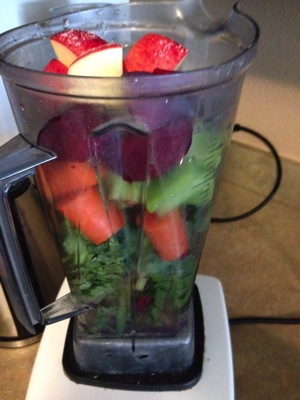
It seems the times when we most need to support ourselves with healthy habits is when we are most apt to fall off the wagon. It can happen during major life changes or stressors, such as a move, the end of a relationship, or change in job status. Although the desire to comfort ourselves with sweets, junk foods, and too many days off from the gym are powerful, in the long run slacking off just adds to the stress. Instead of beating yourself up (which just causes even more stress), honor the fact that you're in a tough spot and take small measures to slowly work your way back into a healthy diet and lifestyle.
Once you see how even the smallest changes transform into more energy and peace of mind it will motivate you to increasingly expand what you include in your healthy habits routine.
With that in mind, here are some gentle and easy steps to keep you from getting sucked into the abyss of destructive habits during stressful times.
Go for a walk. Have you stopped working out? Then walking is a gentle, pleasurable way to reawaken your physical body while settling the mind. Exercise is a magic bullet when it comes to health, but too much exercise stresses the body and causes inflammation. If a major life stressor has you feeling weaker and more tired than normal, that may be your body's way of telling you it needs extra rest to cope. Walking's physical benefits are only part of the story; research shows walking, especially in a natural environment, lowers stress, anxiety, and depression while boosting energy.
Make veggie smoothies. When we're beset by stress, healthy cooking can seem overwhelming. Frozen pizza or bowls of cereal may feel comforting at first, but their effects on your blood sugar stability and brain chemistry will soon spike stress levels. One way to outsmart comfort-food cravings is to make veggie smoothies. Simply combine a few different vegetables, such as carrots, celery, beet, some salad or leafy greens, cucumber, avocado, ginger, etc. with filtered water, a small bit of fruit for taste and, if desired, some lemon juice and salt. People with hypothyroidism should be careful not to overuse raw cruciferous vegetables such as cabbage, kale, or broccoli as it can inhibit thyroid function. Also, avoid the temptation to rely on all fruit smoothies or the use of super-sweet additions such as pineapple or fruit juice. The high sugar content creates stress for the body, something you don't need more of.
Eating lots of veggies also improves the balance of your gut bacteria, which play a profound role in mood, stress, weight, and immunity.
Don't be a hermit. When stress is high it's tempting to retreat under a rock, but isolation can compound your troubles. Ample research has shown the stress-lowering and health-boosting benefits of healthy socialization. Get together with friends, join meetup.com groups, take classes, go to church…being around other people boosts feel-good brain chemicals and is a reminder you're not the only one with big life struggles.



Latest from the Blog
The Death of Red Dye #3
January 15, 2025What Is Red Dye No. 3? Red Dye No. 3, or Erythrosine, is a synthetic food color derived from coal tar. It was first approved by the FDA in the 1950s and quickly became one of the most popular artificial colors in food and cosmetics. Red Dye No. 3 was used in everything from candies, […] Read more
Latest from the Blog
Do You Know What Is In Your Protein Powder?
What’s Really in Your Protein Powder? Understanding the Risks Protein powders are a staple in many health-conscious diets, from athletes seeking muscle recovery to those simply aiming to boost their daily protein intake. With a wide variety of options available, choosing the right one can feel overwhelming. However, recent findings have raised concerns about what’s […] Read more